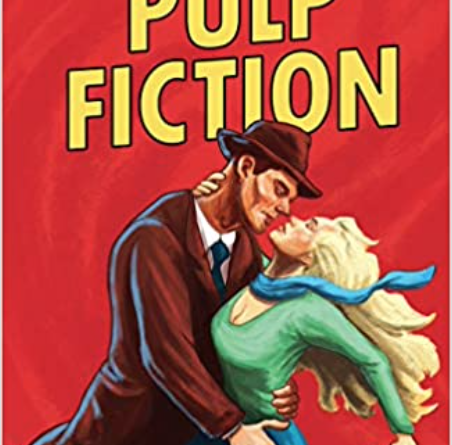Pulp Novels Sell. Here’s a Pulp Novel ‘How To,’ Book
There’s lots of reasons to write pulp novels. One reason is that pulp novels sell, and a writer should never discount what readers want. If you’re a beginner looking for a quick book that will improve your storytelling, here is James Scott Bell’s book, “How to Write Pulp Fiction,” available on Amazon. When you’re a new writer searching the internet for useful advice on how, it’s hard to know what resources to spend your time on, and what to skip.
I’m not sure what compelled me to reach over for my phone the other night and Google, ‘how to write pulp fiction.’ Maybe it’s that something that has been nagging me about my novel. On a subconscious level perhaps, I have worried that my main character is too angsty, or that my premise is too abstract and symbolic. I Googled around, skimmed a few blog posts, and eventually came upon an entire book on the subject, How To Write a Pulp Fiction Novel, on Amazon, for $4.99. I promptly downloaded it.
It took me about 1.5 days to read How to Write a Pulp Fiction Novel on my Kindle. In the same amount of time, you can do the same and know everything I know on the subject.
I learned at least two things from this Pulp writing book:
1. Thanks to this book, I’m a few steps closer to identifying and troubleshooting some items in my novel.
2. Most new writers think they want to write literary fiction, but they really don’t.
I participated in a writer’s workshop several months ago, mostly with military veterans. Only one of us had self published a full length book, many were aspiring poets, and others of us had published a handful of articles with a desire to write fiction. Although a few of us had genre leanings, all of our work in class leaned heavily toward the literary and thematic, and less on plot, pacing, action, and the use of simple language. Why? Well, because the latter is looked down upon, while the former is thought of us high brow and noteworthy in that, “oh you’re so smart,” way.
I think most new writers think they want to write literary because there’s a bias against wanting to be a genre writer, a pulp writer. A bias by whom exactly, and why, I don’t know. Frankly I think it’s all smoke and mirrors, some baggage that new writers have about wanting to look, act, and be smart. But, hello! Everyone respects the Stephen Kings and Dan Browns of the book world. The literary versus genre thing is just another sign of amateur, non-pro attitudes towards writing that make for intellectual fodder in undergraduate classrooms and snobby book clubs. New writers can ditch the, “I want to look smart,” thing and instead pursue the style they best prefer.


